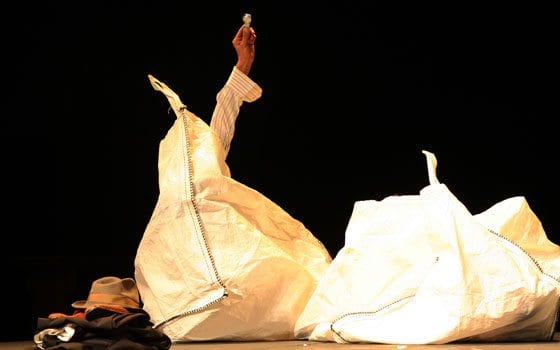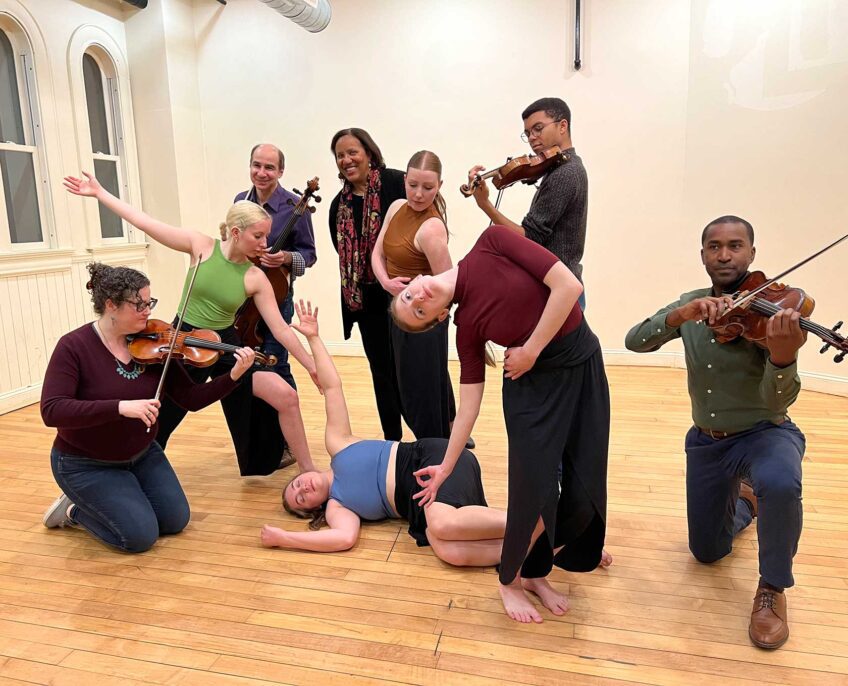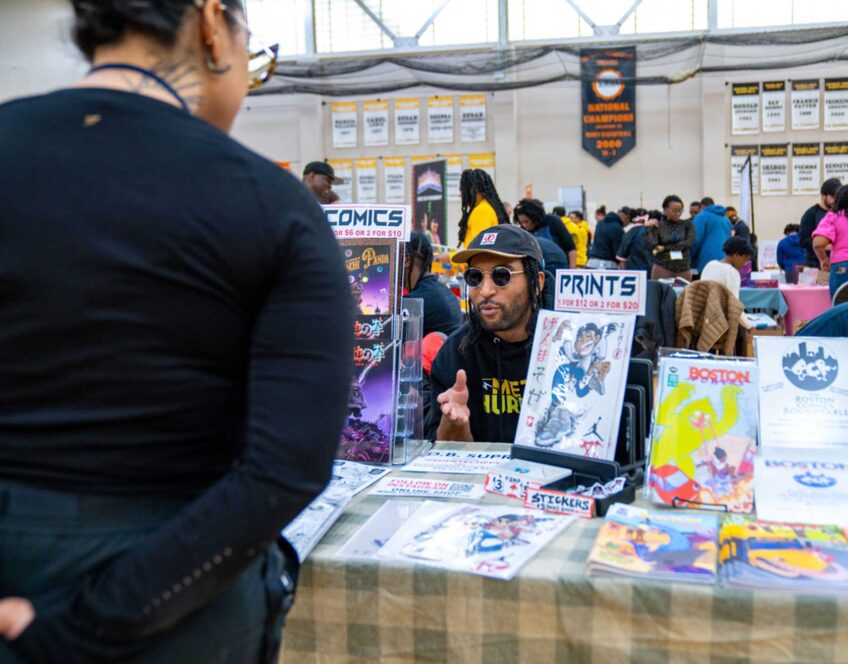
Two wizened, white-bearded men spend 20 minutes taunting, tricking, befriending and attacking each other on an otherwise empty stage. One is a blind fiddler. The other, missing a leg, uses a pole to navigate himself around on a wheeled crate. At one point, he tells the blind man, “If you ask me, we’re made for each other.”
The same could be said of the author of this brief theatrical work, Nobel Prize-winning Irish playwright Samuel Beckett, and the director of the performance, Peter Brook. Both are 20th century modernists whose pared-down theatrical works have timeless freshness, vitality and power.
All these qualities were on display last Wednesday night in a riveting production of “Fragments,” Brook’s hour-long quintet of short Beckett works. On view at the Paramount Center in Boston’s Theatre District through Sunday, “Fragments” is one of two hour-long works directed by Brook that are receiving their Boston premieres in a 12-day celebration of Brook presented by ArtsEmerson: The World on Stage.
The two bickering men in the short play, “Rough for Theatre I” are older versions of the two tramps in Beckett’s classic play, “Waiting for Godot,” whose burlesque antics and verbal sparring Beckett described as “a game in order to survive.”
Brook is faithful to Beckett’s humor, unsparing eye and darkness as well as his lyricism and Beckett’s rhythms and repartee, inspired by English music hall duos such as Laurel and Hardy.
Brook’s moving hour of theater evokes the rituals of daily human existence, the singsong music of Beckett’s poetry and the aching humanity of his characters using no sets, few props and minimal scripts. Evocative lighting by Philippe Vialette complements the spellbinding performances by a trio of actors, each a long-time veteran of Brook productions.
With his co-director Marie-Hélène Estienne, Brook first assembled and staged “Fragments” in 2006. In Brook’s staging, old age and its abiding bonds and memories are a presence in the darkness. Brook, 86, is in his seventh decade as a director and two of the actors, Bruce Myers, the one-legged man, and Yoshi Oïda, the blind man he taunts, have been lead players in his productions for four decades.
Following their duo in “Rough for Theatre I” is the haunting “Rockaby” (1981). Wearing a plain outfit and pumps, the luminous Hayley Carmichael invokes the lyrics of Beckett in an incantatory voice, turning the words into spirals of sound that flow like a chant or an old song. Casting a visual and aural spell, she becomes a grandmother silently rocking and observing her world from a window, unseen by others.
Myers and Oïda return in “Act without Words II” (1956). With deft, wordless mime, they enact a 24-hour ritual of waking, dressing, undressing and going to sleep, cocooning themselves in matching plastic sacks. A prop drops from the ceiling and, like a cosmic prod, pokes a sack, stirring one and then the other to outfit himself in the pants, jacket and hat stacked neatly between them. As the scene ends, Oïda emerges once more from his sack and stares at the ceiling, his face frozen in a defiant glare.
Carmichael follows with a recital of Beckett’s short poem “Neither,” a sing-song meditation on existing in between the “intangible self” and “impenetrable un-self.”
The fifth work, “Come and Go” (1965), drenches the stage in color as the three actors become Vi, Flo and Ru, a trio of ladies on a park bench wearing hats and coats in red, yellow and pink. Following Beckett’s meticulous choreography and prescribed costume instructions for his “dramaticule,” the actors each recite what amounts to less than 130 words. Each lady gets up and while she stands apart, the other two whisper some terrible truth about her, and then she returns to the bench. After all three go through this ritual, they agree to “hold hands in the old way.” Their intertwined arms forming a Celtic knot, suggesting an endless bond.




![Banner [Virtual] Art Gallery](https://baystatebanner.com/wp-content/uploads/2024/04/NJ-H_1-713x848.jpg)

